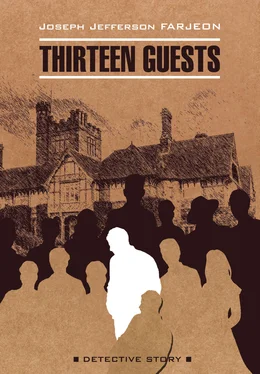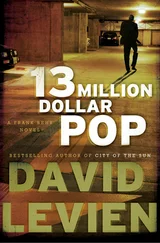“No, I’m sorry,” he muttered. “Really, you must forgive me. You’ve been terribly kind. I don’t know what’s the matter with me.”
Nadine knew. It was her knowledge that had sent her to the window, and that had produced her rather lame effort to readjust the trouble. Something had happened very suddenly. She had sensed the exact moment. It was not the first time the moment had occurred in her experience.
Well—could it be helped? And did it matter? She thought of old Mrs. Morris upstairs. One day she might be like that! She thought of the hunt on the morrow, and of the hunted creature doomed to die, as every one at Bragley Court was doomed to die! But at this moment the hunted creature was not conscious of its fate, nor was any one at Bragley Court, saving Nadine Leveridge herself. She was always conscious of it, and of life’s demand for compensation.
“Don’t apologise, Mr. Foss, and don’t worry,” she said. “It will be all the same five hundred years hence. Meanwhile, since it’s obvious you can’t move, and would have nowhere particular to move to even if you could, remember that we are two very small dots in a very large universe, and finish your tea.”
The 3.28 had brought two visitors to Bragley Court. The 5.56 brought four. The man at the window of the Black Stag watched them alight.
The 5.56 shared with the 12.10 the distinction of being a fast express, and was, therefore, favoured by the majority of Lord Aveling’s guests. It was pleasant to arrive by the 12.10 in the morning, when the sun was at its highest and the sky was at its brightest; you reached your room at Bragley Court by half-past twelve, and your bag was unpacked and your brushes were out by the time the luncheon-gong sounded at half-past one. The 3.38 had its points, too, despite a tedious change, for there is always rather a jolly feeling when you arrive at a country house at tea-time. Tea is an occasion to look forward to after the dust and grit of travel; you flop into soft things and regain your belief in the harmony of life’s rhythm.
But the 5.56 was the train-de-luxe. You could pass a reasonable portion of the day in London before catching it. You spent the minimum of time in it, and although you missed the yellow cups of Bragley Court, a smiling attendant brought you blue ones. And when, at 5.56 to the minute, the gravel sounded in your ears and the train slackened speed, you found Flensham station at its peak—the station-master at his most dignified, the porter at his most obliging, and Old Jim (who never troubled to meet the 3.28, his horse, like himself, being a veteran and needing afternoon rest) at his most hopeful. Not that Old Jim ever expected to get a fare to Bragley Court. His horseflesh was not of the Bragley breed, and Lord Aveling supplied cars for all his guests who did not bring their own. Still there were other destinations, and sometimes a passenger on the 5.56 was bound for one of them.
Of the four guests deposited on the platform on this particular evening, the last to enter the waiting Rolls was a tall, slightish man mid-way between thirty and forty. His name was Lionel Bultin, and he stood, silent and aloof, and purposely lingering, to watch a little incident.
His three companions were, as he had established in the restaurant car, Zena Wilding, the actress, and a married couple who lived an unenviable existence under the name of Chater. Bultin, a ruthless reader of character, had needed only two minutes to decide that an additional “e” slipped between the second and third letters of their name would have described the Chaters more accurately. When the husband looked straight at you he seemed to be seeing you round a corner. The wife hardly ever looked straight at you. She was a silent creature whose moroseness appeared to form her protection against a perpetual desire to scream.
Zena Wilding, on the other hand, was lively and talkative, and while she worried vivaciously about her luggage, she never missed an opportunity to advertise her dentist. Later on, the solemn station-master paused in the important business of writing “We could do—” to recollect her dazzling teeth before concluding “—with new fire-buckets.” And the porter actually dreamt of the teeth, earnestly filling a freight train with tooth-paste to keep them white. But the dazzling teeth made no impression on Lionel Bultin, saving as possible matter for a theatrical paragraph. He felt no personal emotion about them. He had done with personal emotion ten years ago....
In order to understand Bultin’s attitude, and the detachment with which his trained intelligence now absorbed an incident frightful with suppressed emotion, it is necessary to travel back those ten years to the day when, an eager and unsuccessful young journalist, he came to his great decision. In a not-very-attractive bed-sitting-room he had faced his mirror frankly, and had said:
“You’re making a hash of things. Why is it?”
Yes, why was it? Why did people pay no attention to him? Why had an editor refused, for the third time, to see him that very day? Did eagerness and tenacity count for nothing? Willingness—obligingness—sensitiveness? Bultin possessed all these qualities, plus an average capacity to string words together. So why was he living in this faded bed-sitting-room? Why could he not go across to the restaurant opposite and order a wing of chicken? Why was he hungry ?
And then, suddenly, his reflection had changed. The despair and the eagerness had left it. Something quite new had entered and, because he was intelligent as well as hungry, he studied it. The new thing was a queer, cold callousness. A callousness that, because it had lost its faith in humanity, was independent of humanity. He felt as though, all at once, his sensitive soul had died, giving a new functioning power to what remained.
“This means success or the river,” he thought soberly.
He put on his hat and he went out, undecided. The river lay on his right, and the office of the inaccessible editor on his left. He turned to the left. The commissionaire whom he had interviewed thrice saw him coming, and exclaimed, “Can’t you take ‘No’ for an answer?”
Bultin wrote something on a slip of paper. “Give that to your fool of an editor,” he said, and left the office. He had written on the paper: “I could have given you a signed article by Bernard Shaw. Now you can sing for it. The above address will find me.”
Next day the signed article appeared in a rival paper. The editor, a weak man who spent his life in fear of a dropping circulation, never learned that Bultin had not supplied the rival paper with the article. Two hours before Bultin had scribbled his rude note, a friend of his had sold it elsewhere. The editor sent for Bultin and offered him a commission. Bultin turned it down.
He managed to borrow fifty pounds. He began a life of curious isolation. He was ever present in journalistic and social circles, but he remained aloof in his attitude. His manner indicated personal circumstances that did not exist. You would have thought, if you had met Lionel Bultin during those weeks, that he had suddenly come into a large fortune, although he showed no generosity in spending it, and that he could now snap his fingers at life. A successful man attracts success.
Whether Bultin would have achieved his purpose without the assistance of a small social column is not certain. This column was the last remnant of his evaporating work at the time of his decision, and it was itself on the verge of evaporation. Now, however, it began to wake up. It ceased to be soft and kindly. Amazing bits about amazing people appeared in it. Startling bits. Rude bits. With still a few complimentary bits, as bait. All signed Bultin.
Читать дальше












